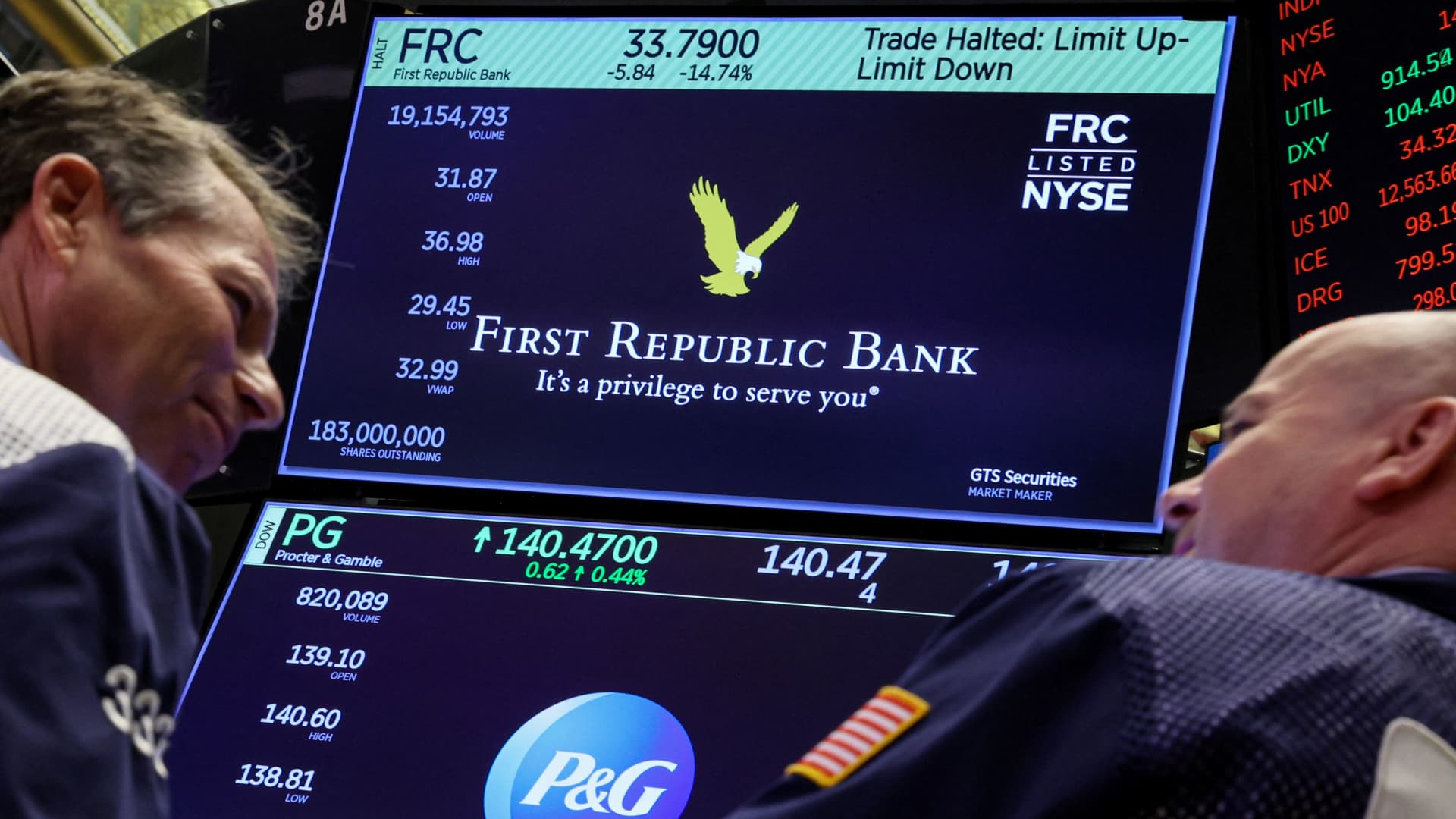Bank shares rebound off lows on report big banks coming to the aid of First Republic
The collapse of Silicon Valley Bank last Friday has left investors scrambling to identify other regional banks that have similar balance sheet issues.

Traders gather at the post where First Republic Bank as the stock is halted from being traded on the floor of the New York Stock Exchange (NYSE) in New York City, March 15, 2023.
Brendan McDermid | Reuters
Shares of First Republic and several other regional banks cut earlier losses Thursday after The Wall Street Journal reported that some big banks were in talks to provide aid to the beaten-down regional.
First Republic shares were down 20.5% before being paused for volatility. PacWest and Western Alliance were also off their lows of the day. The SPDR S&P Regional Bank ETF (KRE) was down less than 1%.
The Wall Street Journal reported on Thursday that JPMorgan and Morgan Stanley were among the banks considering a cash infusion to bolster First Republic.
The collapse of Silicon Valley Bank last Friday has left investors scrambling to identify other regional banks that have similar balance sheet issues, namely a high rate of uninsured deposits and bonds or loans with a long time to maturity.
First Republic had the third-highest rate of uninsured deposits among U.S. banks, behind SVB and Signature Bank, which was closed by regulators over the weekend, according to a note from Raymond James. First Republic's stock was down nearly 75% in March as of Wednesday's close, and the bank's debt has been downgraded by S&P Global Ratings and Fitch Ratings.
First Republic's stock has been under pressure since the collapse of SVB.
Earlier Thursday, Bloomberg News reported the bank was weighing its options to stabilize itself, including a potential sale. But a sale under pressure may not end up being a great deal for shareholders, according to KBW analyst Christopher McGratty.
"Following the sharp decline in the stock post SIVB failure (deposit outflows/liquidity concerns), FRC is admittedly in a challenging position. Any potential sale would likely be a tough outcome for existing shareholders," McGratty said in a note to clients.
The struggles for regional bank stocks has continued despite the announcement from U.S. regulators over the weekend of additional support. That included a new program from the Federal Reserve that allowed banks to swap some assets for cash without having to realize the mark-to-market losses caused by higher interest rates.
In addition to the fears of more bank failures, the potential for increased regulation and smaller deposit bases for midsized banks could also be hurting the stocks as investors assess the future earnings power of the regionals.
The banking system got another shock Wednesday, when Credit Suisse's Swiss-traded shares fell more than 20% amid concerns that the bank's "material weakness" in its financial reporting could lead to it needing to raise more capital. However, the Swiss National Bank, the country's central bank, struck a deal with Credit Suisse to allow it to borrow up to roughly $54 billion.
But while Credit Suisse's struggles could have ripple effects throughout the global banking system, the Swiss bank's problems appear to be unrelated to the U.S. regional banks.

 JimMin
JimMin 































